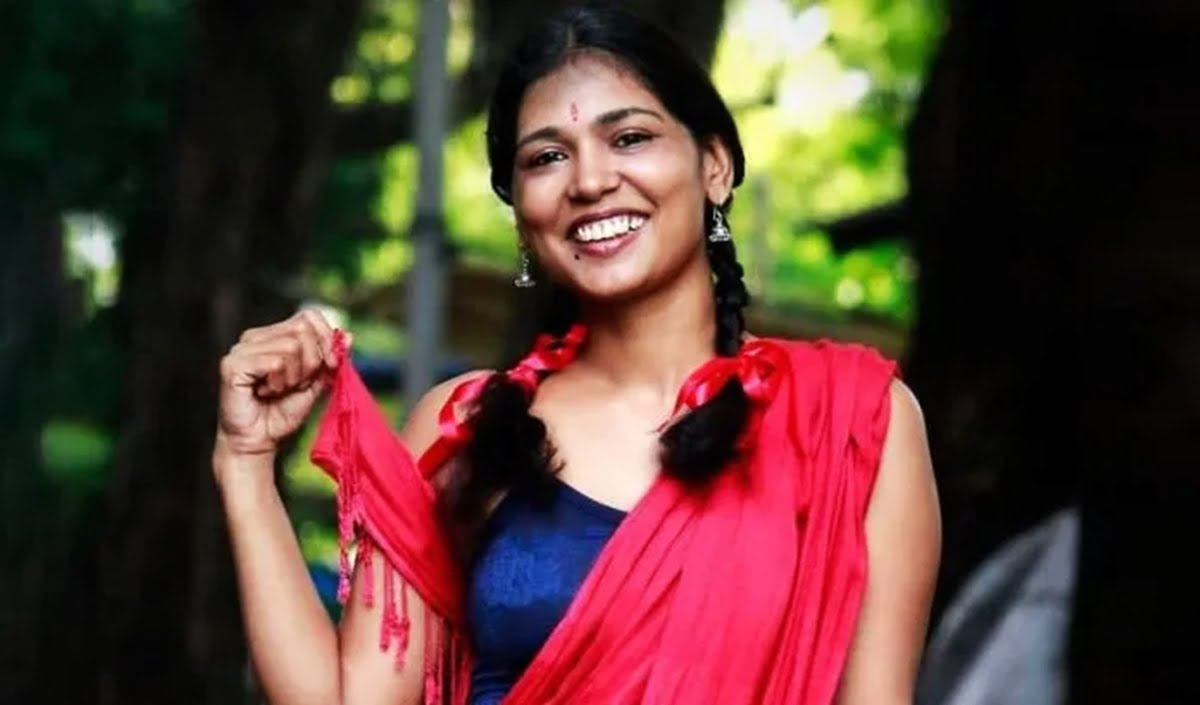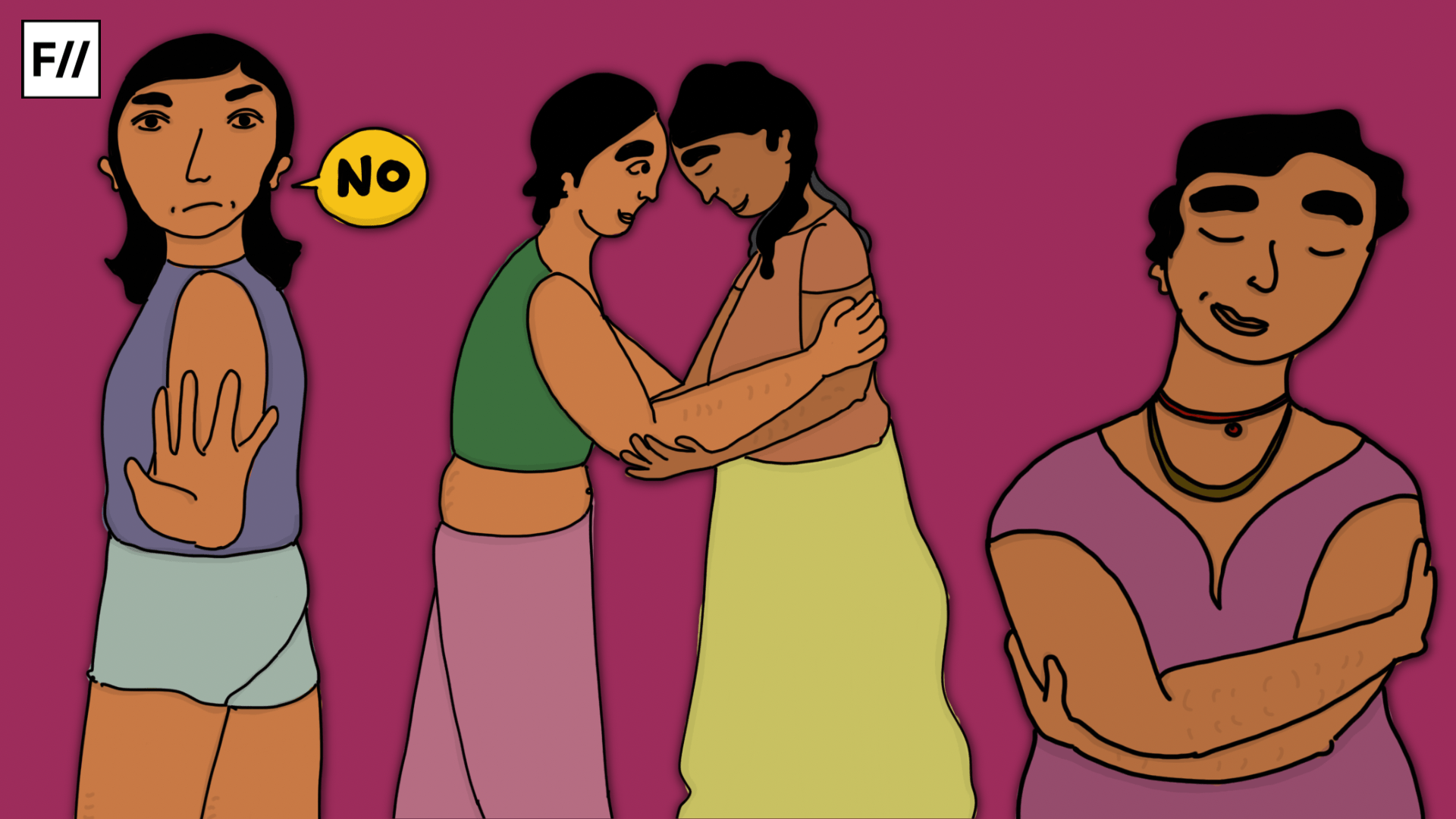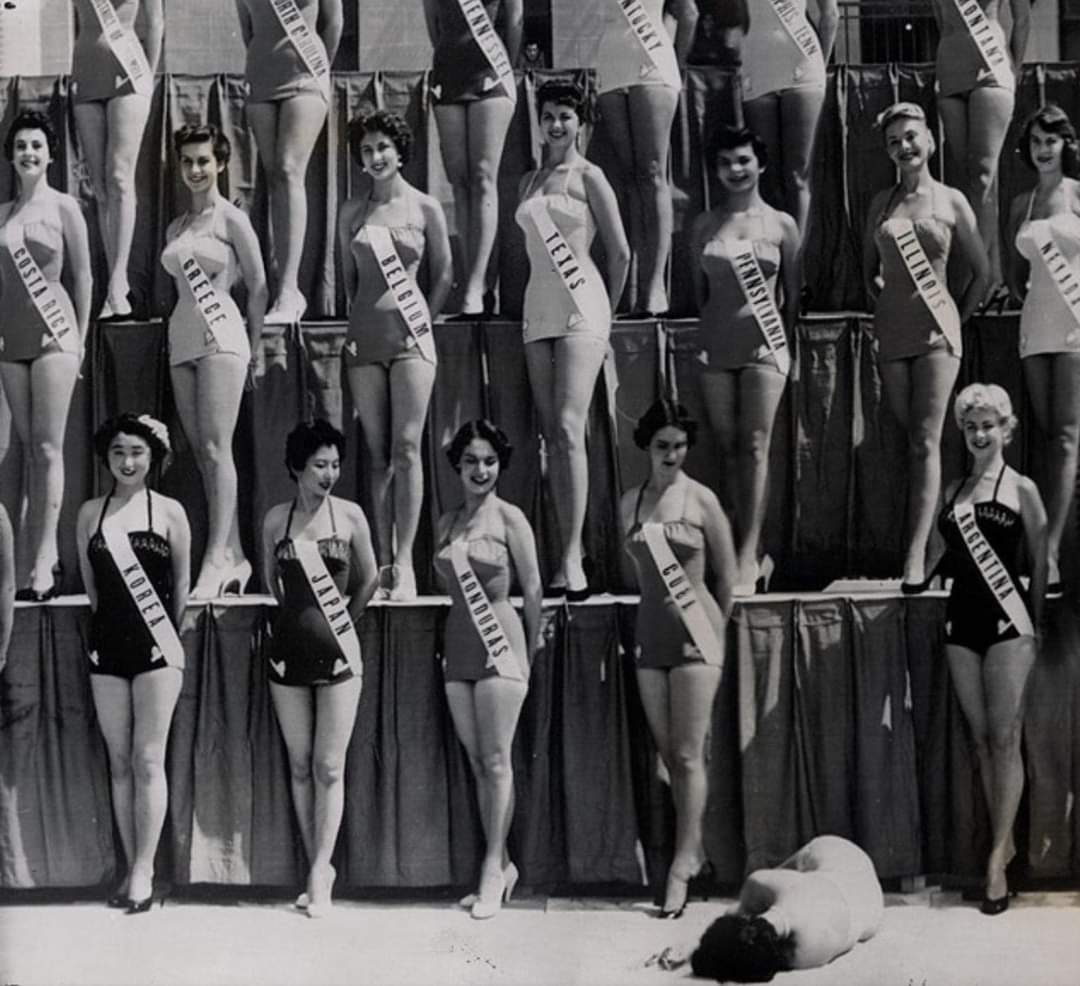When they say that beauty lies in the eyes of the beholder, in the context of activist Rehana Fathima’s recent controversy, the same also seems to hold true when it comes to what defines obscenity for some.
On June 19, a video titled ‘Body and Politics’ was put up on Rehana Fathima’s YouTube channel, which showed her 14-year-old son and 8-year-old daughter painting a phoenix on her semi-nude body.
What started as an art project for a mother with her kids turned into a nationwide matter. On June 19, a video titled ‘Body and Politics’ was put up on Rehana Fathima’s YouTube channel, which showed her 14-year-old son and 8-year-old daughter painting a phoenix on her semi-nude body. A hue and cry followed the circulation of the said video. Some went to the extent of calling it child sexual abuse. Rehana Fathima, who was earlier in the eye of the Sabarimala storm, was booked under Section 67 (electronically transmitting sexually explicit content) of IT Act, and Section 75 (punishment for cruelty to child) of Juvenile Justice Act and section 120 of Kerala Police Act (causing through any means of communication, a nuisance of himself to any person by repeated or undesirable or anonymous call, letter, writing, message, email or through messenger), for posting a video of her children painting on her bare skin.

Also read: Body, Mother, Child And The State — Rehana Fathima’s Video And Us
even though recently Rehana Fathima was granted conditional bail by a special court, on July 24, the Kerala High Court rejected her anticipatory bail petition. On August 8, the Supreme Court rejected her bail plea expanding upon the merits of the case and stated that circulating the video was the bigger issue at hand and had she simply done the activity within the four walls of her house, without sharing it, then it would not have amounted to a crime. The next day she surrendered at South Police station in Kochi stating that she would cooperate with the investigating officers completely.
The SC itself labelled it the video as clearly obscene. The question posed in front of her by the judge was ‘What impression will growing children get?’
I can think of many instances and situations that commonly occur in our country where this question could have been more apt. But an attempt to normalise the female body and reject its mandatory sexualisation should not be one of them.
Rehana went on to explain the reasons behind sharing this video, stating her intent to normalise the female body and “to spread a message to not allow ‘distorted ideas of sexualisation’ in the minds of children.” She further went on to say “No child who has seen his own mother’s nakedness and body can abuse the female body.”
This precise point of distorted ideas of sexualising the female body existing in our society was proven true when Rehana Fathima was accused of committing offences under POCSO. The lens with which we have conditioned humans to look at the female body is an overly sexualized one. The objective of a woman’s body, to provide for herself and her infants, is forgotten as she is objectified. People are so used to considering a woman’s naked body as an arousal piece or just an object of desire, that any other idea apart from that seems absurd and otherworldly. Children do not inherently grow up thinking that any particular act is right or wrong unless it is impressed upon them as such. Pop culture and the entertainment industry is filled with examples of women being degraded, abused, hyper sexualized since a young age. If we already have a one-dimensional view about nudity- that is nudity is a taboo because a naked body is only meant for erotic purposes, then that leaves no room for other uses of the female body.
Women’s bodies are biological wonders, they go through menstruation, sometimes very painful cycles, reproduce and bring in and nurture new life, they bear the effects of menopause and labour often under distressing conditions. All the hardships diminish and seem to be lost in the eyes of the viewer if we have reduced the female form for perverse consumption.
Rehana Fathima added that she often allowed her children to paint on her body ‘like a canvas’ and only a ‘pervert’ can sexualise such an act.
We have murals, statues and art of gods and goddesses displayed in the nude are in ancient temple ruins all over Asia. If such nude sculptures and nude paintings freely publicly available spaces considered as art, even holy, why is a woman using her own agency to display her body considered criminal and offensive to some people’s sentiments?
One could then agree that an artist would look at any surface as a canvas, while a narrow minded and warped individual would only see obscenity when there ought to be none.
We live in a society where when men objectify and treat women’s bodies as a commodity or for commercial purposes such as advertising, it is alright and fits in the patriarchal consumption mould; but when a woman decides to use her body for a purpose with control of the narrative and portraying herself as she wants to on her own terms suddenly becomes a criminal act, as can be seen from Rehana Fathima’s case. The lines between criminality and morality have become blurry especially when it comes to women exercising their own agency.
We live in country where molesters and rapists go unpunished, where domestic violence is commonly brushed aside, but a woman freely teaching her children the concept of viewing nude bodies as normal is suddenly to the Indian mind. We live in a country which is prudish, to say the least. However, as of today, one could easily purchase a magazine, a poster or even a pornographic film. There is easy access to women’s body for pleasure and consumption. The fact that sex trafficking and child pornography exists but is still not dealt with effectively, tells us the extent to which crimes against children are prevalent.
Also read: The Quest For Liberty And Dignity: Against Judicial Insensitivity To A Woman’s Autonomy
In the eyes of a rational society which is comfortable with the female form, Rehana Fathima’s conduct in the present matter should not amount to any form of abuse towards her children. By letting her children be exposed to nude bodies, she is conforming to the idea that there needs to be nothing sexual or offensive about the naked female body.
The SC judge while reprimanding Rehana Fathima’s video said that ‘It will leave a very bad taste in society’. The onus is, however, not on Rehana Fathima. This would be a case of self-developed lasting bad taste in society if not corrected.

In Rehana Fathima’s words, her son “should grow up knowing about his mother’s body, what it is and what it is not“. This is not the first time that a woman’s use of her body, through her own agency has been criticised and certainly won’t be the last. The SC judge while reprimanding Rehana Fathima’s video said that ‘It will leave a very bad taste in society’. The onus is, however, not on Rehana Fathima. This would be a case of self-developed lasting bad taste in society if not corrected. It is up to us to sensitise the youth towards female forms and think about them as more than just sexual objects, to think about nudity as natural and empowering. without adding overtones of vulgarity.
Ishita Shah is a lawyer, bibliophile, animal-lover. She finds dogs better than humans. She volunteers at a couple of NGOs and loves travelling and schooling people on double standards. She can be found on Facebook, Twitter and Instagram.




